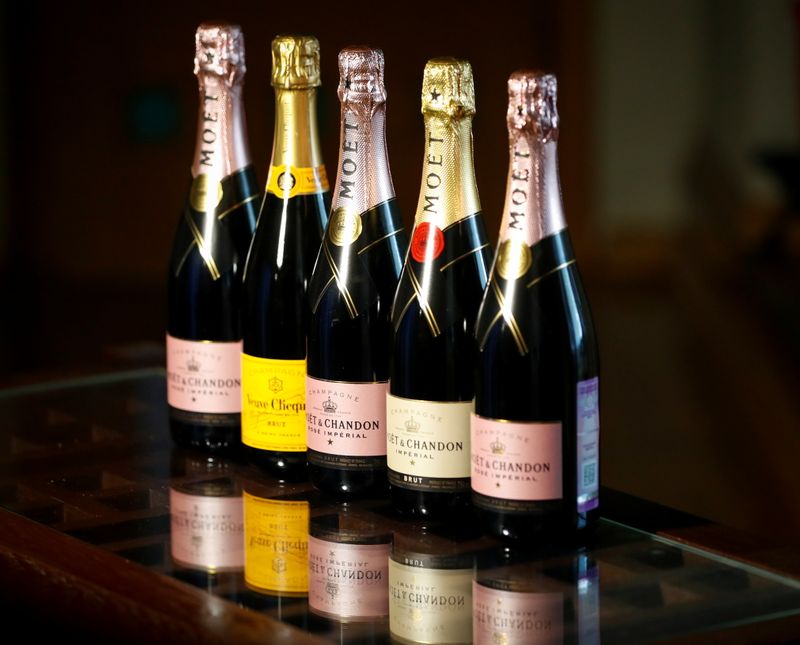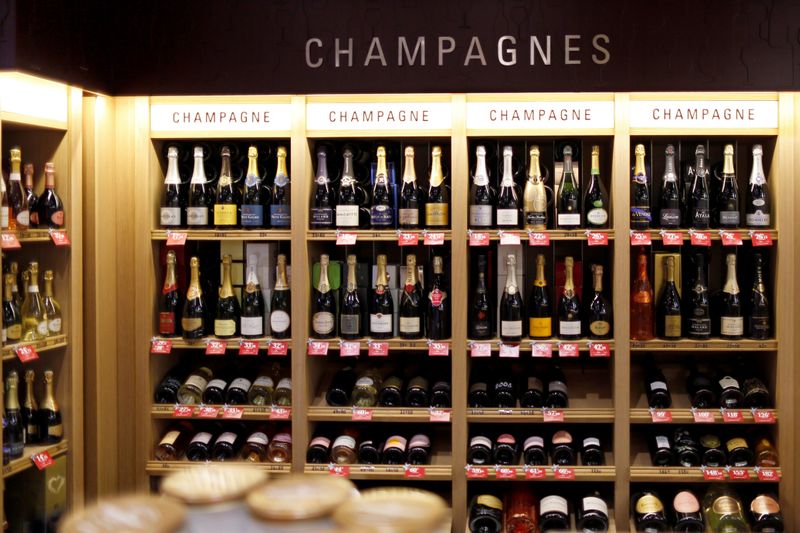PARIS/MOSCOW (Reuters) - France's champagne industry group on Monday blasted a new Russian law that forces foreign producers to add a "sparkling wine" reference to their bottles of champagne, and called for the halting of exports of the bubbly drink to Russia.
The law, signed by Russian President Vladimir Putin on Friday, requires all foreign producers of sparkling wine to describe their product as such on the back of the bottle - though not on the front - while makers of Russian "shampanskoye" may continue to use that term alone.
The French champagne industry group called on its members to halt all shipments to Russia for the time being and said the name "champagne", which refers to the region in France where the drink comes from, had legal protection in 120 countries.
"The Champagne Committee deplores the fact that this legislation does not ensure that Russian consumers have clear and transparent information about the origins and characteristics of wine," Maxime Toubart and Jean-Marie Barillere, the group's co-presidents, said in a statement.
French Trade Minister Franck Riester said he was tracking the new Russian law closely, and was in contact with the wine industry and France's European partners.
"We will unfailingly support our producers and French excellence," he said on Twitter.
Moet Hennessy, the LVMH-owned French maker of Veuve Clicquot and Dom Perignon champagnes, said on Sunday it would begin adding the designation "sparkling wine" to the back of bottles destined for Russia to comply with the law.
LVMH shares were down around 0.2% on Monday afternoon, underperforming the Paris bourse, which was up 0.34%.
Shares in Russian sparkling wine maker Abrau-Durso were up more than 3% after rising as much as 7.77% in early trading.
Pavel Titov, the president of Abrau-Durso, told Radio France Internationale on Saturday his firm does not have sparkling wines that would be called "champagne" in its portfolio and said he hoped the issue would be resolved in favor of global norms and standards.
"It is very important to protect the Russian wines on our market. But the legislation must be reasonable and not contradict common sense ... I have no doubts that the real champagne is made in the Champagne region of France," he said.
The European Commission said the legislation in Russia regarding spirits and wine would have a considerable impact on wine exports and would do all it could to express its disagreement and concern.

"We will do everything necessary to protect our rights and take the necessary steps if this law enters into force," European Commission spokeswoman Miriam Garcia Ferrer said.
Asked what counter-measures the European Union could take in response to the Russian law, she said it was premature to discuss such a situation.
